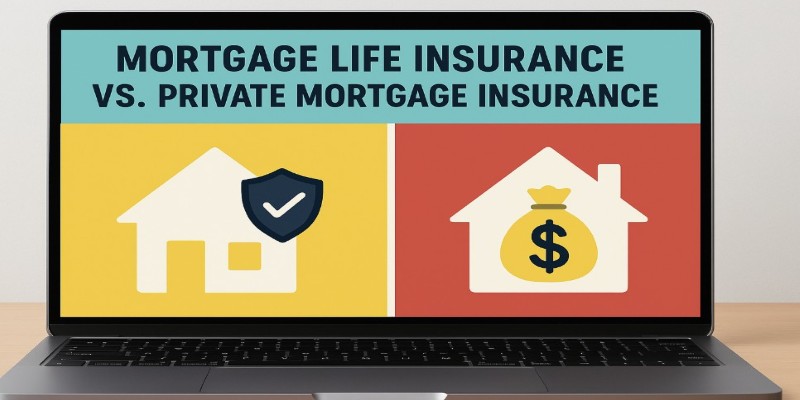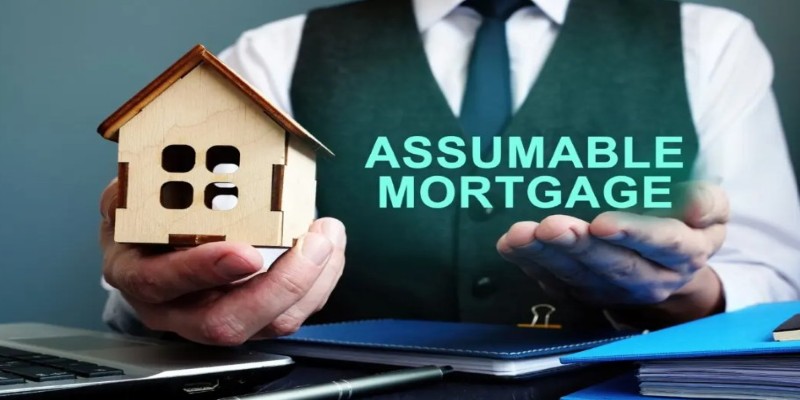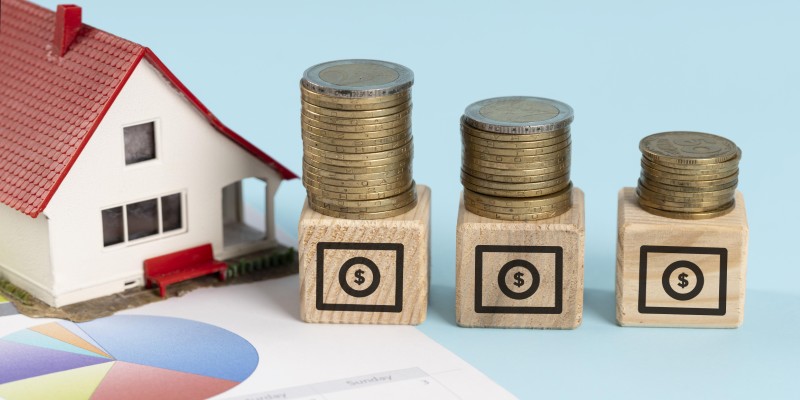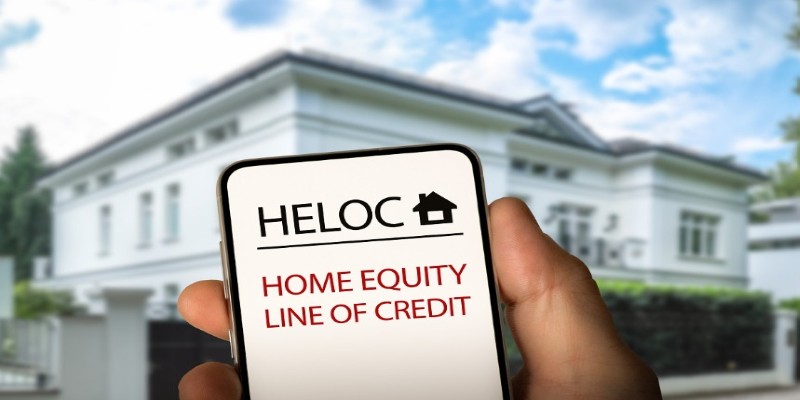Life doesn’t always wait for payday. A broken-down car, sudden bill, or unexpected cost can throw everything off balance. In times like these, people often turn to borrowing. Two of the most common choices are payday loans and personal loans. They both offer quick access to money, but the way they work—and the long-term consequences—are very different. This article breaks down the true cost, risks, and advantages of each to help you make a clear, informed choice when money’s tight.
How Payday Loans Work—and Why They Often Cost More Than You Expect?
Payday loans are short-term loans, typically for a few hundred dollars, designed to be repaid with your next paycheck. They're fast and easy to get. Many lenders don’t check your credit; all they usually require is proof of income, a bank account, and a form of ID. You could walk in or apply online and walk away with the money in minutes.
But the convenience hides the cost. Payday loans come with sky-high fees that translate into triple-digit annual interest rates—sometimes well over 400%. For example, borrowing $300 might cost you $45 for just two weeks. If you can’t pay it back on time, many lenders allow you to "roll over" the loan—meaning you pay another fee for more time. That’s where borrowers often get stuck.
This cycle—borrowing, repaying fees, and borrowing again—can quickly spiral. What starts as a small loan can become an ongoing burden. Since payday lenders usually withdraw repayment directly from your bank account, a missed payment may also trigger overdraft charges, worsening the situation.
Personal Loans: More Structure, More Stability
A personal loan works very differently. It's an installment loan—meaning you borrow a lump sum and pay it back over time, usually in equal monthly payments. Loan amounts typically range from $1,000 to $50,000 or more, and repayment periods can stretch from a few months to several years. Interest rates are much lower than those of payday loans, ranging from around 6% to 36%, depending on your credit.
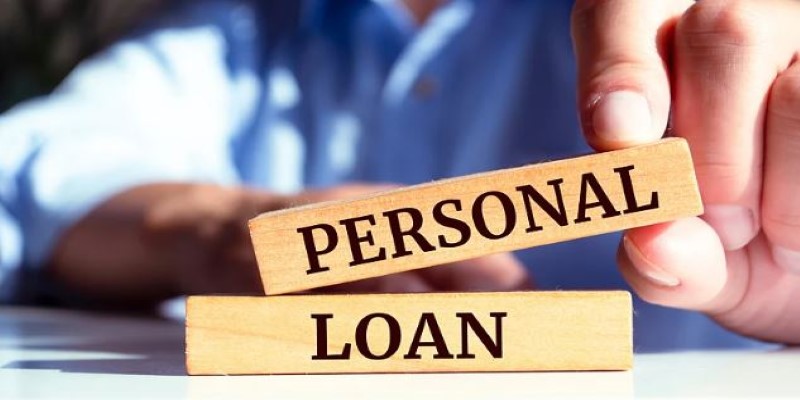
Unlike payday loans, personal loans often require a credit check and proof of stable income. The approval process may take longer—anywhere from a few hours to a few days—but what you get in return is far more manageable. The monthly payments are predictable, the interest is clearly stated upfront, and the overall cost of borrowing is far less.
They’re not just more affordable—they can also strengthen your financial standing. Responsible repayment shows up on your credit report, which can increase your credit score over time. With fixed terms and consistent payments, a personal loan offers more than short-term relief; it provides a plan.
Choosing Between the Two: Situational Needs vs. Long-Term Impact
There are situations where a payday loan may seem like the only option. If your credit is poor and you're in a time crunch, fast approval can look appealing. However, payday loans are best viewed as emergency stopgaps rather than practical tools for financial recovery.
Personal loans require more effort to secure, but they’re built to be sustainable. The structure helps borrowers plan and avoid surprise fees. They're better suited for larger expenses, such as car repairs, medical bills, or consolidating smaller debts into a single payment.
To see the real difference, consider this: One person needs $1,000 and takes out a payday loan with fees that quickly add up. Another qualifies for a personal loan at 15% interest and repays about $1,080 over a year. The second borrower pays less in total—and avoids the stress of lump-sum repayment.
If you can't access a personal loan, some alternatives fall in the middle. These include credit union payday alternative loans (PALs), small-dollar installment loans from reputable lenders, or employer-sponsored advances. These options aim to meet urgent needs without the high costs associated with payday lending.
Long-Term Financial Impact and Moving Forward
Looking past the immediate need, the type of loan you choose can affect your future financial stability. Payday loans rarely support progress. They don't help credit scores, and when missed, they often result in overdraft fees, collections, and further financial trouble.
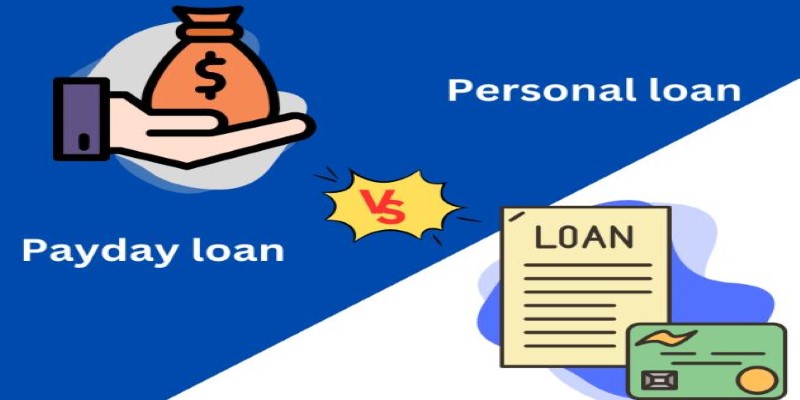
Personal loans, in contrast, are structured for recovery. With fixed terms, lower interest, and monthly payments, they help borrowers regain control without slipping further behind. Over time, they open the door to stronger financial opportunities—whether it’s qualifying for better interest rates, building credit, or just creating breathing room in your budget.
That doesn’t mean they’re without risk. Any loan can be damaging if payments are missed or if you borrow more than you can repay. But personal loans at least offer enough structure to course-correct. They’re not just about solving today’s problem—they give you a shot at doing better tomorrow.
If there’s one takeaway here, it’s this: fast money often comes at a high cost. Taking just a little extra time to weigh your options carefully can prevent months of stress and instability. The loan you choose today could shape your financial story for months—or even years—to come, influencing your savings, peace of mind, and financial growth.
Conclusion
When you’re dealing with unexpected expenses, it’s tempting to grab the fastest money available. Payday loans offer that speed—but at a price that keeps many borrowers stuck. Personal loans, while requiring more steps, give you structure, stability, and a much lower cost in the long run. Before borrowing, consider what you really need: a quick fix or a path to recovery. A payday loan may patch the hole, but a personal loan can help you rebuild the foundation. The smartest move is not always the fastest one—it’s the one that helps you move forward with fewer regrets and protects your budget, credit score, and long-term financial confidence.



